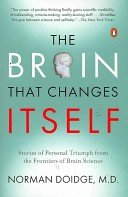Apology for homeschooling No, not an "I'm sorry" apology, though there are some elements of adolescent shyness in this new homeschooling father's essay, but apology in the old sense of a defense. Despite a slightly annoying "we're not that kind of homeschooler" attitude, it's an amusing presentation of "the best way to answer a curious stranger's questions" versus "the whole truth."
Mrs. GSP: Do you use a curriculum?
Me: Oh, sure! Absolutely.
Real answer: Give me a break! These kids are 5 years old. ... That said, you could argue that Leslie has developed a fairly demanding curriculum. But that word comes with certain expectations that don't fit here. It isn't written down, it doesn't run on a set schedule, and it isn't based on lesson plans, piles of worksheets or a fixed rotation from subject to subject....Mrs. GSP: What do you do about socialization?
Me: Oh, we've got a nice support network. They have a circle of friends. They do lots of classes and activities. They go to birthday parties and stuff.
Real answer: My public answer is OK, as far as it goes. But hang on a minute, lady: What do you mean by "socialization"? ... Ordinary schools tend to socialize children by way of enclosed, age-homogeneous pods, while home schooling tends to socialize children through a wide range of interactions with older kids, younger kids and adults, as well as peers. ... Do we regret not exposing our kids to the intense cultural melting pot of New York's school system? Sometimes, sure. But we're also not exposing them to bullying, arbitrary systems of order and discipline, age-inappropriate standards of behavior, and the hegemony of corporatized kid culture. Desmond and Nini have never heard of "Transformers," and we're OK with that.
The follow-up article is better, a hilarious, yet serious look at the results of their homemade curriculum based on myths and other stories of the ancient world. (More)
I'm working on getting Li'l Writer Guy home from Switzerland, but in the meantime, enjoy this wonderful story of a three-year-old who saved her father's life by walking to a nearby fire station and asking for help. Note both that young children can be much more competent than we generally expect these days, and that this competence did not arise in a vacuum, but had been nurtured by her parents. It doesn't have to be, in the words of the reporter, "very un-three-year-old-like."
I can't embed the video, but you can find it on the right of the above-linked page, or here. (H/T Free-Range Kids.)
The title isn't quite true, but it gets past the censors.
Joseph is the non-spitting-est baby I've ever met. I never think of using a burp cloth, and although when I packed for this trip I took into consideration that my clothes would be subject to much baby spit-up, it simply hasn't happened.
It was a good choice of shirts, however.
Joseph had awakened after a three-hour nap, and was not surprisingly in need of a change. Joseph finds a diaper change to be very inspirational.
Have you heard of the volcanoes that, instead of erupting straight up in the air, blow their lava out a side vent? Bright yellow lava, hitting Grandma straight in the face, and adding a contrasting golden spray to the dark blue Carnegie Mellon t-shirt.
No problem. We're signed up for laundry on Thursday.
Permalink | Read 2433 times | Comments (2)
Category Children & Family Issues: [first] [previous] [next] [newest]
To repeat, from Part 1, lest I forget:
DiapersThe first principle is that nobody should be ashamed of thinking a thing funny because it is foreign; the second is that he should be ashamed of thinking it wrong because it is funny. The reaction of his senses and superficial habits of mind against something new, and to him abnormal, is a perfectly healthy reaction. But the mind which imagines that mere unfamiliarity can possibly prove anything about inferiority is a very inadequate mind. — G. K. Chesterton, writing on foreign travel in What Is America?
I thought the diapering world was divided neatly between cloth and disposibles, with elimination communication thrown in as an added wrinkle—which only shows how limited and parochial my world has been. Of course, the whole diaper situation here was planned to be well under control by now, but it has become an issue thanks to a miscommunication with the "diaper lady" reminiscent of my last-minute struggles with Lufthansa's baggage policy. "No, I don't actually sell diapers; I only have samples you can experiment with to help you decide what you like. You can't actually buy them here in Switzerland, and no, I don't have any overseas suppliers to recommend...." (More)
Lenore Skenazy's Free-Range Kids blog is one of my favorite antidotes to the frustrations of modern life, and the outrageous stories she finds make great pass-along blog fodder, though they probably don't do my blood pressure any favors.
In an attempt to resurrect the once-normal sight of kids playing outdoors with their friends till the sun goes down—now unthinkable to many parents despite a crime rate lower than when they themselves played outside unsupervised—she declared tomorrow, May 22, to be Take Our Children to the Park...and Leave Them There Day. I don't think she was expecting quite the firestorm she created when she suggested that pre-teens could survive for half an hour without their parents hovering nearby. You can read all about it, positive and negative, on her blog. (More)
Permalink | Read 2221 times | Comments (2)
Category Children & Family Issues: [first] [previous] [next] [newest]
 The Brain that Changes Itself: Stories of Personal Triumph from the Frontiers of Brain Science by Norman Doidge (Penguin, New York, 2007)
The Brain that Changes Itself: Stories of Personal Triumph from the Frontiers of Brain Science by Norman Doidge (Penguin, New York, 2007)
Neuroplasticity.
The idea that our brains are fixed, hard-wired machines was (and in many cases still is) so deeply entrenched in the scientific establishment that evidence to the contrary was not only suppressed, but often not even seen because the minds of even respectable scientists could not absorb what they were certain was impossible. Having been familiar since the 1960s with the work of Glenn Doman and the Institutes for the Achievement of Human Potential, the idea that the human brain is continually changing itself and can recover from injury in astonishing ways did not surprise me. In fact, the only shock was that in a 400 page book on neuroplasticity and the persecution of its early pioneers I found not one mention of Doman's name. But the stories are none the less astonishing for that.
In Chapter 1 we meet woman whose vestibular system was destroyed by antibiotic side-effects. She is freed by a sensor held on her tongue and a computerized helmet from the severely disabling feeling that she is falling all the time, even when lying flat. That's the stuff of science fiction, but what's most astounding is that the effect lingers for a few minutes after she removes the apparatus the first time, and after several sessions she no longer needs the device. (More)
Permalink | Read 8187 times | Comments (6)
Category Reviews: [first] [previous] [next] [newest] Education: [first] [previous] [next] [newest] Health: [first] [previous] [next] [newest] Children & Family Issues: [first] [previous] [next] [newest]
Today's Mallard Fillmore comic inspired this post, which Li'l Writer Guy had actually been working on in the background ever since a conversation we had about the subject last night.

Mind you, I don't know any of the details of how it will work, and am only commenting on the theory that children should be covered on their parents' health insurance until they are 26 years old. (More)
A friend of mine likes to clean out her files periodically, and when she does I know to expect an envelope in the mail. She's very much into recycling.
Some of the articles she sends are from years back, so when there's one I'd like to share it's not always possible to locate it online. Thanks to Google News archives, however, you too can read this Lori Borgman column from 2002.
Maybe when all's said and done, the greatest perk of staying for the duration is knowing and being known.
Lori is both wise and funny, a healthy combination in any era.
Permalink | Read 2549 times | Comments (1)
Category Children & Family Issues: [first] [previous] [next] [newest]
 The Gobblestone School: A Tale Inspired by the German Criminalization of Homeschooling, by Jacob Schriftman (aka Jokim Schnoebbe)
(Moonrise/CreateSpace, Scotts Valley, California, 2009)
The Gobblestone School: A Tale Inspired by the German Criminalization of Homeschooling, by Jacob Schriftman (aka Jokim Schnoebbe)
(Moonrise/CreateSpace, Scotts Valley, California, 2009)
I wanted to like this book.
First, I wanted to read it, and for that I had to buy it, as it was not available in the library. It languished in my Amazon "save for later" cart for a while, but I recently decided to indulge myself. I'm glad I read it, but as indulgence goes, I'd rather have dark chocolate. (More)
It's not a topic I'd intended to blog about, even though I'd read the AP article, Top home-school texts dismiss Darwin, evolution. But I wrote so much in a comment to a friend's Facebook post (thanks, Liz!), I figure it's a shame not to make a second use of the effort.
Our own homeschooling experience left me not particularly impressed with the efforts of specifically Christian publishers, beginning with the discovery that the A Beka kindergarten book I'd bought taught that winter is a time of snow, with no mention of the large part of the world where that isn't true. I suspect most books at the kindergarten level are about as bad, but A Beka is based in Pensacola, Florida, and should have known better. (More)
 Homeschooling for the Rest of Us: How Your One-of-a-Kind Family Can Make Homeschooling and Real Life Work, by Sonya Haskins
(Bethany House, Minneapolis, 2010)
Homeschooling for the Rest of Us: How Your One-of-a-Kind Family Can Make Homeschooling and Real Life Work, by Sonya Haskins
(Bethany House, Minneapolis, 2010)
Sonya Haskins is a calm and reasonable voice speaking to the homeschooler—and potential homeschooler—who is overwhelmed and intimidated by the image of the "perfect" homeschooling experience: "Matching outfits, polite toddlers, award-winning students, fifteen-passenger vans, and family Web sites." (Raymond and Dorothy Moore did the same thing in the 1980s with Homeschool Burnout, which was updated and revised in the 1990s as The Successful Homeschool Family Handbook.) There's a lot of hype, confusion, and contradictory information out there, and Haskins' practical, back-to-basics approach and helpful suggestions will reassure timid beginners that they can, indeed, safely navigate the homeschooling waters. (More)
 Weapons of Mass Instruction: A Schoolteacher's Journey through the Dark World of Compulsory Schooling, by John Taylor Gatto
(New Society Publishers, Gabriola Island, BC, Canada, 2009)
Weapons of Mass Instruction: A Schoolteacher's Journey through the Dark World of Compulsory Schooling, by John Taylor Gatto
(New Society Publishers, Gabriola Island, BC, Canada, 2009)
A pastor I know was fond of quoting Martin Luther, who, when asked why he preached on justification by faith every week, responded, "Because you forget it every week." John Taylor Gatto has no love for Martin Luther, but I can imagine him giving a similar response when asked why his books, articles, and lectures include so much that he has said before. He has a critically important message to deliver, and is clearly compelled to repeat it as many times and in as many ways as he can.
In his desperation to make people understand what he has learned, from his research and 30 years on the front lines of teaching, Gatto has become more pointed, strident and radical as time goes on. It's an understandable reaction—I remember noting the same effect in John Holt's writings, and I fall prey to it all too often myself—but for this reason I hesitate a little to recommend Weapons of Mass Instruction to anyone who is not already convinced of the dangers inherent in our pubic school system. And yet...I do recommend it, highly. Why? Let me digress. (More)
 Theatre Shoes, by Noel Streatfeild (Dell, New York, 1983)
Theatre Shoes, by Noel Streatfeild (Dell, New York, 1983)
This wasn't on my reading list at this time, but the combination of (1) hearing a Teaching Company lecture about The Tempest and remembering the part it plays in this book, and (2) a dreary, chilly, rainy day in which the computer, the dryer, and the telephone all suddenly stopped working, led me to feel that what I needed was a bit of curling up by the heater with a blanket, a cup of tea, and an easy-to-read, uplifting book. (More)
Jennifer at Conversion Diary is turning 33, and asked her readers what they would say to their 33-year-old selves if they could. That's the kind of challenge I can't resist, and neither can I resist recycling what I wrote as a blog post. It's pretty much just off the top of my head, and in no particular order, but here are a few of the things I wish I could have told myself.
- Have more kids. There were some good reasons why we didn't, but a very bad reason was buying into the "you can't afford it and neither can the world" mentality. If you haven't lived through it, I don't think you can fathom how much pressure there was in those days to have no more than two children.
- Expect much more from your children than society does, on every level. From the day they are born, your children can learn more, do more, and behave better than you will be told is possible. Don't limit them with your low expectations.
- Homeschool. Homeschool. Homeschool. From the beginning, and never look back. This is one of the best decisions we ever made, and I wish we had never subjected our children to the "school mindset." But when I was 33, school was "the way things are done," and I never questioned it till years later.
- "Bloom where you are planted." Make the most of your present situation, because you never know when it will change.
- Keep a journal, take pictures (and label them!), make recordings. Concentrate on people and places dear to you—there are plenty of professionals documenting the rest of the scenery.
- When you videotape your children's performances, be sure to include their friends as well. You may not care, but your children will!
- Talk with older family members about their childhoods and their life stories, and get everything you can from them about your ancestors and family history. Make sure their pictures are labelled!
- Take care of yourself. When you have young children at home, it's very easy (and seems virtuous) to shortchange yourself when it comes to sleep, exercise, education, and the care of your soul. Make yourself make time for these things. Enlist the aid of your spouse—I don't mean to tell you what to do, but to make sure you get the time to do it. Your children will thank you later.
- If you are too busy to get organized, you are too busy not to get organized. Make the time (and again, get your spouse to help). There is no moment better than now; that mythical time "when I have time" will never come. Never give up; experiment with different systems till you find one that works for you. Be prepared to alter it as needed, however, when your circumstances alter.
Permalink | Read 2956 times | Comments (4)
Category Children & Family Issues: [first] [previous] [next] [newest] Random Musings: [first] [previous] [next] [newest]

 Tales of the Greek Heroes by Roger Lancelyn Green (Puffin Books, London, 2002) and The Tale of Troy by Roger Lancelyn Green (Puffin Books, London, 1994)
Tales of the Greek Heroes by Roger Lancelyn Green (Puffin Books, London, 2002) and The Tale of Troy by Roger Lancelyn Green (Puffin Books, London, 1994)
These two books are meant to be read together, with the story of Troy second.
After my very positive experiences with Green's books on Robin Hood, King Arthur, and ancient Egyptian stories, I expected too much of these two. I still recommend them; they are worth reading, and I found that within a week something I read there helped me understand a story I heard later. Nonetheless, there are drawbacks. (More)

